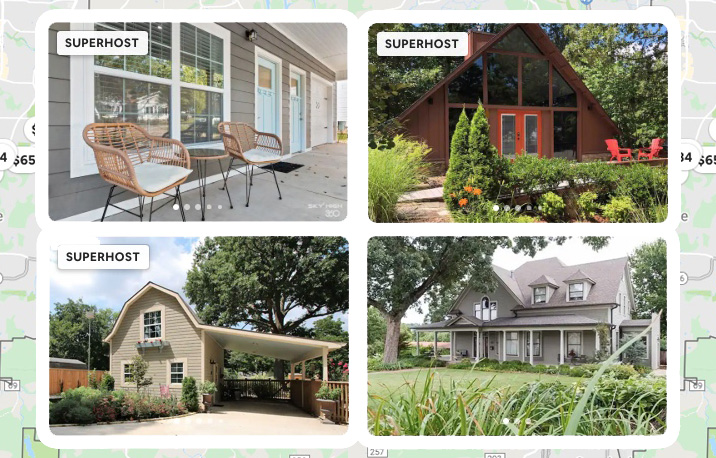
It will be about three more weeks before the Fayetteville City Council revisits a proposal to legalize the short-term rental of homes through services like Airbnb, VRBO and HomeAway.
The council last week tabled an ordinance to add regulations that address short-term rentals in the city. It’s the third time the proposal has been tabled to allow more time to fine-tune the rules.
The council last July adopted a resolution directing city staff to study and develop the regulations. After that, the city hosted a series of focus groups, public meetings and an online survey to help guide planners through the draft process. The Planning Commission twice discussed the rules and eventually forwarded a final proposal to the City Council for approval.
While short-term rentals are illegal in Fayetteville, city planners estimate there are between 500-600 homes being used as short-term housing. Most of the properties are rented through Airbnb, which has an agreement with the city to collect Fayetteville’s 2% HMR (hotel, motel and restaurant) sales tax.
The city is able to collect sales tax from most stays, but because most short-term rentals are operating as a hotel or motel, they are violating city code since they’re located in residential neighborhoods where such business is against the law. Hotels and motels must be located in one of the city’s commercial or mixed-used zoning districts, according to city code.
Reducing noise, parking, traffic and trash problems in neighborhoods is one thing staff hopes to accomplish through regulation, but there are other goals of the initiative.
Staff said a short-term rental ordinance would also ensure a level playing field between traditional homes, illegal short-term rentals and hotels. It could also help eliminate party houses and ensure building safety for renters.
Under the proposed rules, short-term rentals would be categorized as either Type 1 or Type 2.
Type 1 rentals are homes that the owners live in, but sometimes rent rooms or the whole house to guests. Accessory dwelling units also count as Type 1 properties. Type 2 rentals are rented all year, and have no owners living in them.
Both types of rentals would require a business license, which must be renewed annually for $15. Initial license fees cost between $15-$52 depending on the application date. A safety inspection would be required before an initial license is approved, but no further inspections would be necessary when renewing an existing license.
Type 2 owners would have an additional requirement to obtain a conditional use permit from the Planning Commission if the rental is located in a residential neighborhood. Type 2 properties in residential areas would also count toward a proposed 2% city-wide density cap, meaning no more than 2% of all the dwelling units in town could be short-term rentals. That number would be based on the U.S. Census Bureau’s most recent count, which is currently about 36,000 total units. By that math, there could be no more than about 720 Type 2 rentals in Fayetteville.
Another rule would put a 10% limit on how many units in a multi-family building could be used as short-term rentals if the building is within a residential zoning district.
A grace period would be granted for short-term rentals that are already in operation, meaning the owner would have six months after the law is adopted before they’d need to apply for a license and permit. Existing Type 2 operators who apply before the six-month grade period ends would be grandfathered in and would not need to obtain a conditional use permit.
One of the more contentious issues raised is the proposed occupancy limit rule which states that a short-term rental could only house two people per bedroom plus two more, with a maximum of eight people regardless of the number of bedrooms. For example, a two-bedroom home with a sleeper couch in the living room could advertise that it sleeps six people, but a four-bedroom home would be capped at eight people even if it had other areas with beds.
Another item that has sparked public comment is a proposed rule that states no parties or special events could be hosted in a short-term rental. Those who are opposed aren’t as concerned about large parties, but have argued that smaller events like a baby shower should be allowed in a short-term rental.
The council’s Ordinance Review Committee is set to review the proposal at its next meeting, which is expected to occur sometime in the next two weeks. The council will continue its discussion on March 16.

